Discover The John Batchelor Show
The John Batchelor Show

The John Batchelor Show
Author: John Batchelor
Subscribed: 4,358Played: 2,543,840Subscribe
Share
Description
The John Batchelor Show is a hard news-analysis radio program on current events, world history, global politics and natural sciences. Based in New York City for two decades, the show has travelled widely to report, from the Middle East to the South Caucasus to the Arabian Peninsula and East Asia.
5000 Episodes
Reverse
SHOW
12-22-25
THE SHOW BEGINS WITH DOUBTS ABOUT FUTURE NAVY.
1941 HICKAM FIELD
1. Restoring Naval Autonomy: Arguments for Separating the Navy from DoD. Tom Modly argues the Navy is an "underperforming asset" within the Defense Department's corporate structure, similar to how Fiat Chrysler successfully spun off Ferrari. He suggests the Navy needs independence to address critical shipbuilding deficits and better protect global commerce and vulnerable undersea cables from adversaries.
2. Future Fleets: Decentralizing Firepower to Counter Chinese Growth. Tom Modly warns that China's shipbuilding capacity vastly outpaces the US, requiring a shift toward distributed forces rather than expensive, concentrated platforms. He advocates for a reinvigorated, independent Department of the Navy to foster the creativity needed to address asymmetric threats like Houthi attacks on high-value assets.
3. British Weakness: The Failure to Challenge Beijing Over Jimmy Lai. Mark Simon predicts Prime Minister Starmer will fail to secure Jimmy Lai's release because the UK mistakenly views China as an economic savior. He notes the UK's diminished military and economic leverage leads to a submissive diplomatic stance, despite China'sdeclining ability to offer investment.
4. Enforcing Sanctions: Interdicting the Shadow Fleet to Squeeze China. Victoria Coates details the Trump administration's enforcement of a "Monroe Doctrine" corollary, using naval power to seize tankers carrying Venezuelan oil to China. This strategy exposes China's lack of maritime projection and energy vulnerability, as Beijingcannot legally contest the seizures of illicit shadow fleet vessels.
5. Symbolic Strikes: US and Jordan Target Resurgent ISIS in Syria. Following an attack on US personnel, the US and Jordan conducted airstrikes against ISIS strongholds, likely with Syrian regime consultation. Ahmed Sharawi questions the efficacy of striking desert warehouses when ISIS cells have moved into urban areas, suggesting the strikes were primarily symbolic domestic messaging.
6. Failure to Disarm: Hezbollah's Persistence and UNIFIL's Inefficacy. David Daoud reports that the Lebanesegovernment is failing to disarm Hezbollah south of the Litani River, merely evicting them from abandoned sites. He argues UNIFIL is an ineffective tripwire, as Hezbollah continues to rebuild infrastructure and receive funding right under international observers' noses.
7. Global Jihad: The Distinct Threats of the Brotherhood and ISIS. Edmund Fitton-Brown contrasts the Muslim Brotherhood's long-term infiltration of Western institutions with ISIS's violent, reckless approach. He warns that ISISremains viable, with recent facilitated attacks in Australia indicating a resurgence in capability beyond simple "inspired" violence.
8. The Forever War: Jihadist Patience vs. American Cycles. Bill Roggio argues the US has failed to defeat jihadist ideology or funding, allowing groups like Al-Qaeda to persist in Afghanistan and Africa. He warns that adversaries view American withdrawals as proof of untrustworthiness, exploiting the US tendency to fight short-term wars against enemies planning for decades.
9. The Professional: Von Steuben's Transformation of the Continental Army. Richard Bell introduces Baron von Steuben as a desperate, unemployed Prussian officer who professionalized the ragtag Continental Army at Valley Forge. Washington's hiring of foreign experts like Steuben demonstrated a strategic willingness to utilize global talent to ensure the revolution's survival.
10. Privateers and Prison Ships: The Unsung Cost of Maritime Independence. Richard Bell highlights the crucial role of privateers like William Russell, who raided British shipping when the Continental Navy was weak. Captured privateers faced horrific conditions in British "black hole" facilities like Mill Prison and the deadly prison ship Jersey in New York Harbor, where mortality rates reached 50%.
11. Caught in the Crossfire: Indigenous Struggles in the Revolutionary War. Molly Brant, a Mohawk leader, allied with the British to stop settler encroachment but became a refugee when the British failed to protect Indigenous lands. Post-war, white Americans constructed myths portraying themselves as blameless victims while ignoring their own Indigenous allies and British betrayals regarding land rights.
12. The Irish Dimension: Revolutionary Hopes and Brutal Repression. The Irish viewed the American Revolutionas a signal that the British Empire was vulnerable, sparking the failed 1798 Irish rebellion. While the British suppressed Irish independence brutally under Cornwallis, Irish immigrants and Scots-Irish settlers like Andrew Jackson fervently supported the Continental Army against the Crown.
13. Assessing Battlefield Realities: Russian Deceit and Ukrainian Counterattacks. John Hardie analyzes the "culture of deceit" within the Russian military, exemplified by false claims of capturing Kupyansk while Ukraine actually counterattacked. This systemic lying leads to overconfidence in Putin's strategy, though Ukraine also faces challenges with commanders hesitating to report lost positions to avoid forced counterattacks.
14. Shifts in Latin America: Brazilian Elections and Venezuelan Hope. Ernesto Araujo and Alejandro Peña Esclusapredict a 2026 battle between socialist accommodation and freedom-oriented transformation in Brazil, highlighted by Flavio Bolsonaro's candidacy against Lula. Meanwhile, Peña Esclusa anticipates Venezuela's liberation and a broader regional shift toward the right following leftist defeats in Ecuador, Argentina, and Chile.
15. Trump's Security Strategy: Homeland Defense Lacks Global Clarity. John Yoo praises the strategy's focus on homeland defense and the Western Hemisphere, reviving a corollary to the Monroe Doctrine. However, he criticizes the failure to explicitly name China as an adversary or define clear goals for defending allies in Asia and Europe against great power rivals.
16. Alienating Allies: The Strategic Cost of Attacking European Partners. John Yoo argues that imposing tariffs and attacking democratic European allies undermines the coalition needed to counter China and Russia. He asserts that democracies are the most reliable partners for protecting American security and values, making cooperation essential despite resource constraints and political disagreements.
16. Alienating Allies: The Strategic Cost of Attacking European Partners. John Yoo argues that imposing tariffs and attacking democratic European allies undermines the coalition needed to counter China and Russia. He asserts that democracies are the most reliable partners for protecting American security and values, making cooperation essential despite resource constraints and political disagreements.
1850 FRANKLIN
15. Trump's Security Strategy: Homeland Defense Lacks Global Clarity. John Yoo praises the strategy's focus on homeland defense and the Western Hemisphere, reviving a corollary to the Monroe Doctrine. However, he criticizes the failure to explicitly name China as an adversary or define clear goals for defending allies in Asia and Europe against great power rivals.
1770 FIVE VIEWS OF NY ENTRANCEC
14. Shifts in Latin America: Brazilian Elections and Venezuelan Hope. Ernesto Araujo and Alejandro Peña Esclusapredict a 2026 battle between socialist accommodation and freedom-oriented transformation in Brazil, highlighted by Flavio Bolsonaro's candidacy against Lula. Meanwhile, Peña Esclusa anticipates Venezuela's liberation and a broader regional shift toward the right following leftist defeats in Ecuador, Argentina,1910 NATIONAL LIBRARY OF BRAZIL
13. Assessing Battlefield Realities: Russian Deceit and Ukrainian Counterattacks. John Hardie analyzes the "culture of deceit" within the Russian military, exemplified by false claims of capturing Kupyansk while Ukraine actually counterattacked. This systemic lying leads to overconfidence in Putin's strategy, though Ukraine also faces challenges with commanders hesitating to report lost positions to avoid forced counterattacks.
1940
12. The Irish Dimension: Revolutionary Hopes and Brutal Repression. The Irish viewed the American Revolutionas a signal that the British Empire was vulnerable, sparking the failed 1798 Irish rebellion. While the British suppressed Irish independence brutally under Cornwallis, Irish immigrants and Scots-Irish settlers like Andrew Jackson fervently supported the Continental Army against the Crown.
1780 GORDON RIOTS
11. Caught in the Crossfire: Indigenous Struggles in the Revolutionary War. Molly Brant, a Mohawk leader, allied with the British to stop settler encroachment but became a refugee when the British failed to protect Indigenous lands. Post-war, white Americans constructed myths portraying themselves as blameless victims while ignoring their own Indigenous allies and British betrayals regarding land rights.
1780
10. Privateers and Prison Ships: The Unsung Cost of Maritime Independence. Richard Bell highlights the crucial role of privateers like William Russell, who raided British shipping when the Continental Navy was weak. Captured privateers faced horrific conditions in British "black hole" facilities like Mill Prison and the deadly prison ship Jersey in New York Harbor, where mortality rates reached 50%.
1775 NYC HARBOR
9. The Professional: Von Steuben's Transformation of the Continental Army. Richard Bell introduces Baron von Steuben as a desperate, unemployed Prussian officer who professionalized the ragtag Continental Army at Valley Forge. Washington's hiring of foreign experts like Steuben demonstrated a strategic willingness to utilize global talent to ensure the revolution's survival.
1921 WASHNGTON HQ VALLEY FORGE
8. The Forever War: Jihadist Patience vs. American Cycles. Bill Roggio argues the US has failed to defeat jihadist ideology or funding, allowing groups like Al-Qaeda to persist in Afghanistan and Africa. He warns that adversaries view American withdrawals as proof of untrustworthiness, exploiting the US tendency to fight short-term wars against enemies planning for decades.
1910 PESHAWAR
7. Global Jihad: The Distinct Threats of the Brotherhood and ISIS. Edmund Fitton-Brown contrasts the Muslim Brotherhood's long-term infiltration of Western institutions with ISIS's violent, reckless approach. He warns that ISISremains viable, with recent facilitated attacks in Australia indicating a resurgence in capability beyond simple "inspired" violence.
1800 YEMEN
6. Failure to Disarm: Hezbollah's Persistence and UNIFIL's Inefficacy. David Daoud reports that the Lebanesegovernment is failing to disarm Hezbollah south of the Litani River, merely evicting them from abandoned sites. He argues UNIFIL is an ineffective tripwire, as Hezbollah continues to rebuild infrastructure and receive funding right under international observers' noses.
1969 BEIRUT
5. Symbolic Strikes: US and Jordan Target Resurgent ISIS in Syria. Following an attack on US personnel, the US and Jordan conducted airstrikes against ISIS strongholds, likely with Syrian regime consultation. Ahmed Sharawi questions the efficacy of striking desert warehouses when ISIS cells have moved into urban areas, suggesting the strikes were primarily symbolic domestic messaging.
1898 DAMASCUS
4. Enforcing Sanctions: Interdicting the Shadow Fleet to Squeeze China. Victoria Coates details the Trump administration's enforcement of a "Monroe Doctrine" corollary, using naval power to seize tankers carrying Venezuelan oil to China. This strategy exposes China's lack of maritime projection and energy vulnerability, as Beijingcannot legally contest the seizures of illicit shadow fleet vessels.
1937 NING HEI, CHINA
3. British Weakness: The Failure to Challenge Beijing Over Jimmy Lai. Mark Simon predicts Prime Minister Starmer will fail to secure Jimmy Lai's release because the UK mistakenly views China as an economic savior. He notes the UK's diminished military and economic leverage leads to a submissive diplomatic stance, despite China'sdeclining ability to offer investment.
EMPRESS DOWAGER CIXI.
2. Future Fleets: Decentralizing Firepower to Counter Chinese Growth. Tom Modly warns that China's shipbuilding capacity vastly outpaces the US, requiring a shift toward distributed forces rather than expensive, concentrated platforms. He advocates for a reinvigorated, independent Department of the Navy to foster the creativity needed to address asymmetric threats like Houthi attacks on high-value assets.
1918 SEVASTOPOL
1. Restoring Naval Autonomy: Arguments for Separating the Navy from DoD. Tom Modly argues the Navy is an "underperforming asset" within the Defense Department's corporate structure, similar to how Fiat Chrysler successfully spun off Ferrari. He suggests the Navy needs independence to address critical shipbuilding deficits and better protect global commerce and vulnerable undersea cables from adversaries.
1898 DEWEY'S FLAGSHIP OLYMPIA
PREVIEW Guest: Professor Richard Bell Summary: Professor Bell discusses his book on the American Revolution, focusing on the "darkest passage" of the war: British prison hulks in New York Harbor. He details the horrific conditions on the ship Jersey, where the mortality rate reached 50%, and recounts the survival story of prisoner William Russell.
1776 NY HARBOR
PREVIEW Guest: Victoria Coates Summary: Coates analyzes China's energy vulnerability, specifically its reliance on a "shadow fleet" importing Venezuelan oil. She suggests the US should interdict these shipments because China lacks a "Plan B." Forced to buy licit, market-price oil from suppliers like the Saudis, Beijing would suffer significant costs to its economic growth.
1845 CARACAS
PREVIEW Guest: Bill Roggio Summary: Roggio reports on the expansion of jihadist groups across Africa, including Somalia, Mali, and Burkina Faso. He warns that European powers have effectively abandoned these regions, allowing them to descend into chaos and fall under jihadist control, while the US does only enough in Somalia to "keep the lid on."
1935 ETHIOPIA













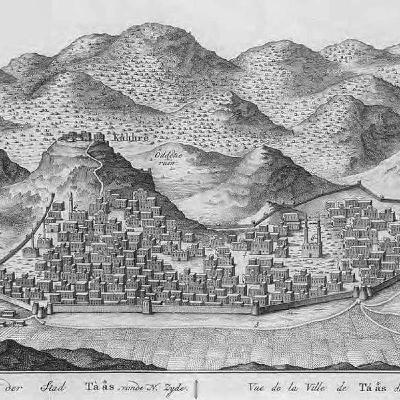
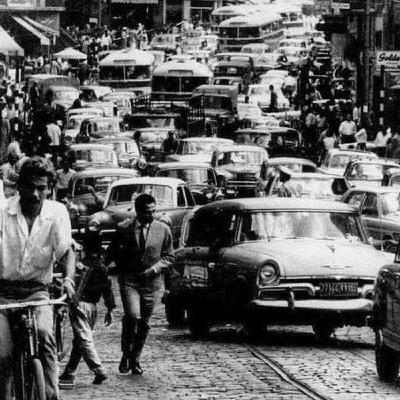
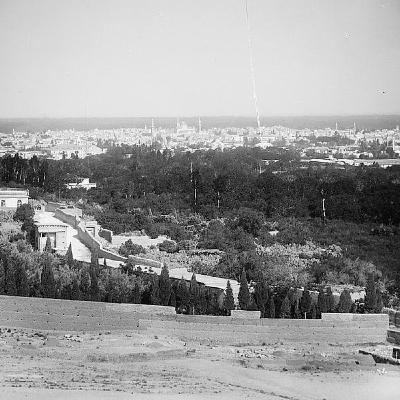


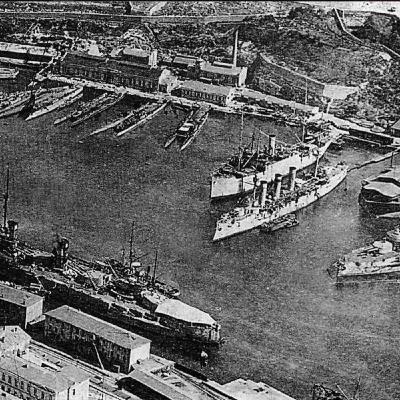
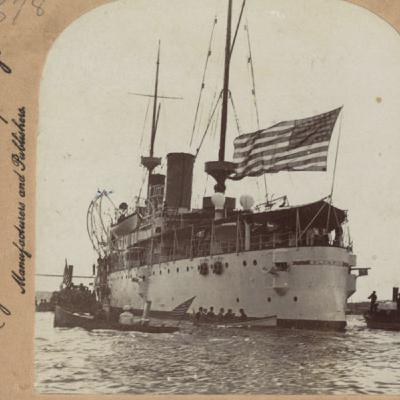

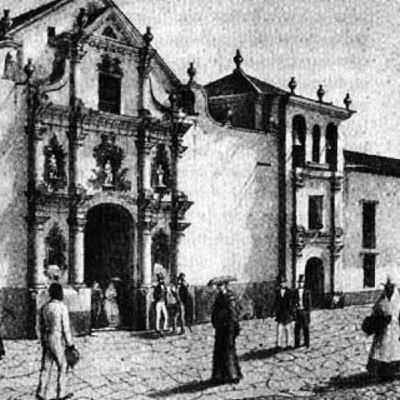
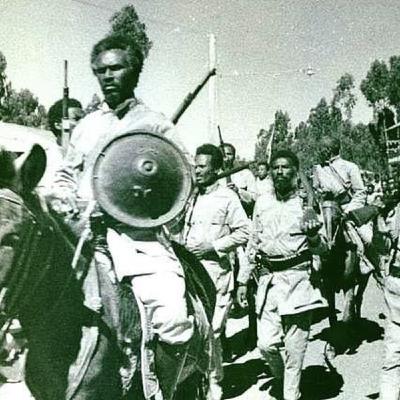



The antisemitic police commercial is a huge insult to commonsense. Enforcing the law drops crime. It worked during the 90's. Why not now.
vvpljl6ooo 9jy656uyyyyyy7
The John Batchelor Show offers insightful analysis on global events and history. Highly recommended for anyone interested in in-depth news coverage! Check it out: スプランキー https://play-sprunki.org
The title has nothing to do with the actual podcast. This is sadly an annoying habit that has somehow been taken up. This happens quite often.
hqr1
has nothing g to do with Ukraine. this is a retelling of the Cuban missle crisis.
what impact they will have on international space endeavors. If relevant resources or documentation are intended to accompany the commit, you might want to include a reference like https://mywguportal.com/ to direct users to a related portal or resource. Would you like help editing the commit message or improving documentation next?
The subject matter dosen't match the title. This seems to happen with many episodes.
have you seen the movie "The Castle". it's a great movie about exactly this legal issues.
I love how you incorporate https://misidegameonline.com examples and real-life situations to make your points. This article is a great blend of information and approachability, and I’m sure many will benefit from the knowledge you’re sharing.
there’s a cultural aspect at play; traditional https://mapquestrouteplanner.org values often emphasize saving over spending, particularly in uncertain times.
It would be interesting to see how these plans evolve https://polytrack.org/ and what impact they will have on international space endeavors.
Chang's insights suggest that Xi's leadership https://papaspizzeria2.org/ prioritizes a strict adherence to party doctrine and control over public discourse, contrasting sharply with Gorbachev's attempts at political openness and reform.
In a bold leap of innovation, Test Group engineers embarked on a daring venture: crafting a Frankenstein commercial airplane. Incorporating cutting-edge technologies and components sourced globally, this aviation marvel promises unparalleled efficiency and safety. From the fuselage to the avionics, each element synergizes seamlessly to redefine flight standards. Visit https://www.testgroup.com/ to witness the evolution of air travel, where pioneering meets reliability. Embodying resilience and ingenuity, this Frankenstein creation signifies a new era in aerospace engineering, bridging dreams with reality. Experience the future of flight with Test Group's visionary aircraft, where every journey begins with boundless imagination and precision engineering.
Thecepisodevhad nothing to do with WW2 but Italy's covid response from 2022. Someone is not checking.
ehelp
Who pays this woman?
⦁ This article contains very valuable information for beginners. This is a very informative blog for me, thank you for sharing this blog. . PDS International is also Best Digital Freight Forwarder PDS INTERNATIONAL PVT. LTD
like the news is not control in usa
john you keep pushing the war . Nazy state of Ukraine you're in the wrong side of history.